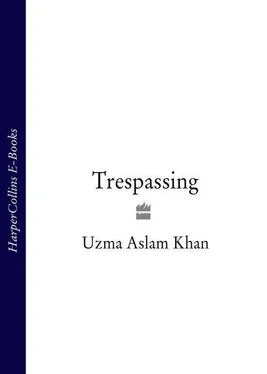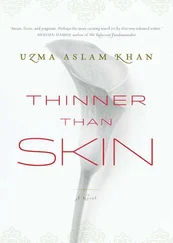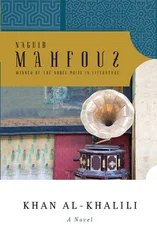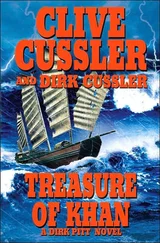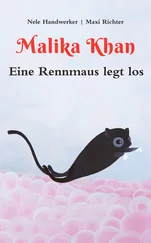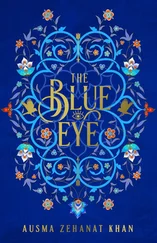Dia smiled contentedly. Now she’d play What If, and retell the story.
If, for instance, the Empress Hsi-Ling-Shih had suspected how her discovery would shape the destiny of others, would she instead have tossed away the threads, never to speak of them again? If she’d known that a thousand years later, several dozen Persians would pay with their lives for trying to smuggle silkworms out of China, would she have made that robe? If she hadn’t, perhaps one of the many innocent daughters of those murdered men might have one day stood the chance of discovering something else.
Would the Empress have squashed the caterpillars if she’d known what would happen twenty-five hundred years after her find? If so, the Sicilians who’d been trying to make silk from spider webs wouldn’t have kidnapped and tortured their neighbors, the Greek weavers, to elicit their knowledge. Instead, the Greek weavers might have lived to a ripe old age, and one of them would perhaps have borne a great-great-grandchild capable of unraveling … the mystery of Dia’s father’s death?
Or, what if the Empress had seen even further into the future? Seven hundred years after the agony of the Greeks, history repeated itself. Now it was the Bengali and Benarsi weavers who suffered. If she’d known how the British would chop off the nimble thumbs that made a resham so fine it could slip through an ear-hole, perhaps the Empress would have trampled over the maggots. Then the subjugated nation’s exchequer would not have been exhausted importing third-rate British silk.
If all that wouldn’t have stopped her, then would the death of Dia’s father?
Dia stopped the clock and reconstructed the scene.
His mangled body drifted down the Indus, past one coastal village after another. The villagers had seen too much destruction to care about yet another corpse. They stood with sticks pressed into the muddy banks and stared in silence. Finally, after four days, word reached a coroner. Mr Mansoor’s bullet-ridden remains were heaved out of the river like sodden fruit and the village psychic swore that for five hundred rupees she could wring him back to life. She demanded one toenail, a dot of his saliva, another dot of his sweat and one of his seed. At the latter a few onlookers snickered. Dia recognized two reporters from the night her father was up in the tree. She lunged for them, but was gently ushered aside by the cook Inam Gul. But she’d already seen the only part of her father left uncovered: his bloated feet, themselves a blue and branching river. Inam Gul tried to cover her ears but she heard the rumors: his kidneys had been shot through with electric currents, his thumbs snapped, arms sliced, and he’d been made to walk on spikes and broken glass. Because of his weight, the barbed bed had cut through bone.
If four thousand years ago the Empress had never discovered silk, where would Dia be now?
The elders tried to teach her that Fate could be postponed — maybe by a year or several hundred, by his naughty sister Chance — but not altered. How one’s destiny unfurled was not to be second-guessed. Perhaps it would take a longer story, with unexpected players, but eventually, it followed the course that it was meant to take.
Eventually. The timing nagged. Who could tell actual time from postponed time? If all detours lead to a predetermined outcome, it hardly mattered, then, if one was early or late, if a meeting was held today or tomorrow, if a letter was couriered or the stamps pocketed. People talked of how the country was in a state of transition. Soon the dust would settle, and miraculously, the violence in Sindh that had claimed her father, among others, would vanish. But they couldn’t say when, how, or who would bring about the course that was ordained. In fact, they liked to add, come to think of it, the dust hadn’t settled anywhere — even the industrialized West had problems. In fact, it had never settled. What else had history shown? The river always flowed into the sea. Which branch entered first was irrelevant. Leave tomorrow, they advised, in God’s hands.
Only her mother believed otherwise. She said the elders wanted to saturate the world in indifference, to wrap a bandage around it that would hold back all the things that could move the country forward. It was all a ploy to keep things working in their own favor. Take marriage, for instance. They wanted it to remain a union that suited them, not the couple. She told Dia the worst thing she could do was listen to that, and perhaps was the only mother in the country to repeatedly warn her to marry only out of love, not obligation.
* * *
With the book in hand, Dia made her way swiftly down the tree.
The garden exploded with the twittering of tufted bulbuls and squawking mynas. Jamun and fig trees were in bloom. She turned down a path that led to the pergola beyond which her family had taken tea every evening, barring rain. With one brother in London, and the other in love and computers, now only she and her mother were left to keep the tradition.
The thought of visiting the silkworm farm tomorrow lifted Dia’s spirits. The caterpillars had begun spinning their cocoons. Though they were notoriously private when conducting their artistry, in previous years she’d learned an art of her own: stillness. She could freeze even in a room with humidity of over seventy per cent, with sweat dripping from her brows, and binoculars swiftly fogging up. She’d watch tomorrow.
But then Dia remembered a promise to a friend. Opening the kitchen door she stopped in mid-stride and cursed, ‘Damn that Nini! Why am I so nice?’
The cook looked up. He hadn’t covered the chapaatis to keep them warm. Dia scowled, wrapping the bread herself, while the cook pretended not to notice. ‘Why am I so nice?’ she repeated for his benefit.
Inam Gul shook his head in agreement, adding, ‘Mahshallah, you are so very nice.’ He was toothless, benevolent, and instantly forgiven.
‘That stupid Nissrine wants me to accompany her to a Quran Khwani tomorrow. She’s going just to look at the dead man’s son. Says he’s supposed to be good-looking and is studying in America. Can you imagine how shameless she’s become?’
He commiserated, ‘You’re too nice.’ A dribble of yogurt hung on his chin.
‘Wipe your chin or Hassan will get angry — first you let his chapaatis get cold, then you finish all the yogurt.’
The cook licked away the evidence. ‘I had just a teaspoon.’ His arthritic fingers stuck a point in the air, indicating the size of the spoon.
‘That’s the second lie you’ve told today. Since one was for me, I’ll tell one for you too.’
Grinning, he opened the refrigerator and began scooping up the last of the elixir.
Dia continued, ‘I’ll go for exactly one hour. If Nini wants to stay longer, she’s on her own. I can’t believe it! If she has no respect for herself, at least she should respect the dead. What’s she going to do, pick him up, with his father still warm in the grave?’
When the plastic yogurt pouch was empty, the cook chucked it in the wastebasket, hiding it deep among the waste. ‘The dead will be watching.’
‘Maybe you could send her away when she comes to get me. You know, say I’ve got diarrhea or something. She wouldn’t want me embarrassing her by running to the toilet every few minutes.’ The cook enjoyed that. ‘Or maybe I should embarrass her?’ He enjoyed that even more. His fingers caressed the air as he tried to picture it. Dia was inspired. ‘Yes, that’s what I should do. But how? What should I do? Help me think of something to mess up her plan.’
The cook licked his lips and thought seriously for a while. He scratched the white wisps of hair that puffed up around his head like down and hesitated, mumbling again, ‘The dead will be watching.’
Читать дальше
Конец ознакомительного отрывка
Купить книгу
